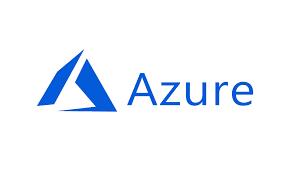Introduction to Microsoft Azure: What is it and why use it?
Microsoft Azure is a cloud computing platform that provides a wide range of services for building, deploying, and managing applications and services through the cloud. It offers a collection of services such as computing, storage, networking, and database, as well as advanced services like artificial intelligence, analytics, and the Internet of Things (IoT).

Azure enables businesses to move their IT operations to the cloud and scale their applications and services as their needs change. It also allows developers to build, test, and deploy their applications with greater speed and efficiency. With Azure, businesses can enjoy the flexibility of the cloud while maintaining control over their data and resources.
One of the key benefits of using Azure is the ability to scale resources up or down as needed. This allows businesses to be more agile and responsive to changing market conditions, and to avoid the cost of maintaining hardware that is underutilized or unused. For example, a business may need to spin up additional resources during peak times or for a new project and then scale back down when the demand decreases. Azure makes it easy to do this with just a few clicks.
Another benefit of Azure is the ability to reduce IT costs. Instead of investing in expensive hardware and infrastructure, businesses can pay for only the resources they use on Azure. This means companies can save money on hardware, maintenance, and electricity costs, and can reinvest those savings into other areas of their business.
Additionally, Azure offers a high level of security and compliance, making it a popular choice for businesses that need to meet regulatory requirements. Azure’s security features include role-based access control, encryption, and threat detection and response. It is also compliant with several regulatory frameworks such as ISO 27001, HIPAA, and GDPR.
Some examples of businesses that use Azure include:
-
Adobe: Adobe uses Azure to provide a cloud-based version of its Creative Suite software, which enables users to access and collaborate on design projects from anywhere.
-
Coca-Cola: Coca-Cola uses Azure to analyze data from vending machines in real time, which enables them to identify trends and optimize product placement.
-
GE Healthcare: GE Healthcare uses Azure to develop and deploy machine learning models for medical imaging analysis, which helps doctors make more accurate diagnoses.
-
JetBlue: JetBlue uses Azure to manage its mobile app, which allows customers to book flights, check-in, and receive notifications about flight changes.
-
Microsoft Azure is a global platform with data centres located in over 60 regions around the world. This allows businesses to deploy their applications and services closer to their users for better performance and lower latency.
-
Azure is also compatible with a variety of programming languages, frameworks, and tools, making it a versatile platform for developers. It supports popular languages like .NET, Java, Python, and Node.js, as well as tools like Visual Studio and GitHub.
-
Azure offers a range of pricing options, including pay-as-you-go, reserved instances, and hybrid benefits. This allows businesses to choose the best pricing model for their needs and budget.
-
Microsoft provides extensive documentation and resources for developers and IT professionals to help them learn and get started with Azure. This includes tutorials, code samples, and community forums.
-
Azure also integrates seamlessly with other Microsoft products and services, such as Office 365 and Dynamics 365. This makes it easy for businesses to build and deploy applications that work together with their existing Microsoft infrastructure.
-
Finally, Microsoft Azure is constantly evolving and expanding its offerings. New services and features are added regularly, which means businesses can stay up-to-date with the latest cloud technologies without having to invest in new hardware or software.
Overall, Microsoft Azure offers businesses a powerful platform for building, deploying, and managing applications and services through the cloud. Its scalability, cost-effectiveness, security, and global reach make it an attractive choice for businesses of all sizes and industries, while its compatibility with popular programming languages and integration with other Microsoft products make it a versatile platform for developers and IT professionals.





